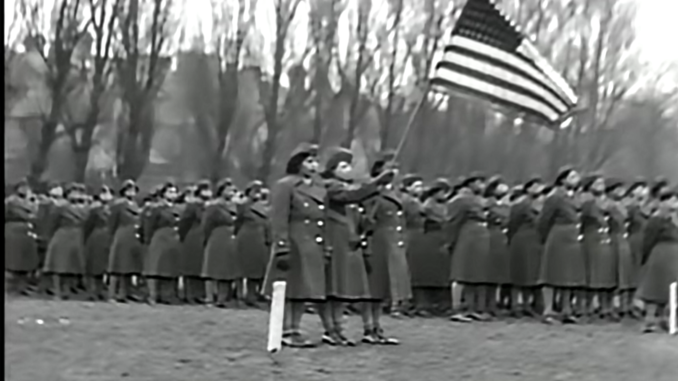
“MAIL CALL!”
Every soldier at the business end of the war looked forward to hearing a sergeant shout those words. It meant there was a chance they’d get a letter from home. Nothing was more important to morale for troops anywhere. But in the 1944 European theatre, mail addressed to GIs was backed up for months, some up to two years. Millions of undelivered letters and packages sat in British warehouses and aircraft hangers, in piles up to the rafters. There was just too much mail coming from the home front and too few personnel sorting and directing mail in theatre. General Eisenhower asked the War Department to send WACs (Women’s Army Corps) to clear out the backlog.
The Pentagon tapped the 6888th Central Postal Directory Battalion, an all African-American WAC unit formed in 1943. Civil rights leaders had been pressuring the military to send WACs of color overseas. The women, all volunteers, had been through several weeks of basic training, followed by specialist training. Much of the physical training they went through was similar to what men had to do, but without combat training. They weren’t expected to do any fighting, but they did learn how to board and evacuate transport ships, climb ropes, cross trenches, negotiate obstacles, and use gas masks. And of course they marched, sometimes long distances. The Six Triple Eight battallion, as they called themselves, was comprised of five companies: headquarters company, plus Able, Baker, Charlie, and Dog companies. Battalion commander was Major Charity Edna Adams, an African-American woman in an era when most black units had white (and male) officers. In all, there were 824 enlisted personnel and 31 officers, all black, all women, the largest WAC unit of its kind.
The battalion’s first contingent embarked 3 February 1945 aboard the ocean liner Ile de France. Reportedly, they encountered U-boats as they crossed the North Atlantic, and when they arrived at Glasgow, Scotland, a V-1 missile struck nearby to welcome them to the war. The rest of the battalion joined them a few weeks later.
Mountains of mail were waiting in Birmingham. The old buildings the 6888th had to work in were unheated and without natural light – windows were painted over to blackout the city at night due to air raids. They worked in three shifts around the clock, dressed as warmly as possible. The WACs were treated well by the Birmingham locals, but they experienced racism from white American soldiers and sexism from both white and black GIs. Still, they cleared the estimated six-month backlog in only three months, handling 65,000 pieces of mail on average each shift. The battalion motto was, “No mail, low morale”, and they did a phenomenal job getting the mail moving again.
The 6888th relocated to France 9 June 1945. The war in Europe was over by that time, but there was still a great deal of mail that needed to be handled for the occupation forces. Generally, their experience in France was an improvement with better living and working accomodations and better food and supplies. Eventually the battalion rotated back stateside, the last of the women arriving in February 1946. The US Army history website has done a great job telling their story, if you’d like to learn more.
“World War II- Major Charity Adams- 6888 Postal Battalion” (2:38):
“Anna Mae Robertson, The “Six Triple Eight”” (2:33):
“The Six Triple Eight documentary Trailer” (2:01):
Question Of The Night: Many adults would love to have the time to take a nap after lunch, but most kids resist a rest. Should those kids be arrested, and what would you charge them with?
